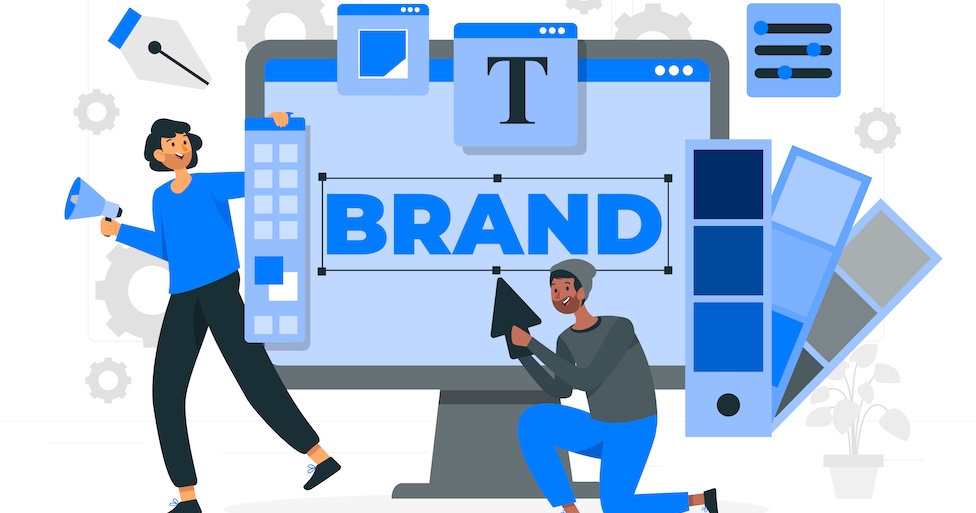The Importance of trademarking an intellectual property or IPR is undeniable. But, does it come easy and without any hassle?
While the simple answer is, no, it does not as it requires a lot of paperwork and documentation. However, it is worth it when you look at all the benefits, which we will come towards later.
But, if you look at the global landscape in the past decade or two, you would understand that the dispute between artists and companies over intellectual properties is highly common.
The reason behind that is the divided and diverse nature of cultures around the globe.
However, since the internet rarely lets anything get pass unnoticed, the requirement of acquiring the legal rights of your intellectual property has become indisputable.
That is why the court of laws are busy around the clock, to ensure that in the age of the internet, the rightful owners or claimant of such IPR keep their heads above the surface.
Because it does not only cast a good reflection upon the justice system around the globe, but it also helps ensure that, the rightful artists and businesses get compensated for their hard work and dedication.
So, we are going to look at some of the reasons why you need to trademark your intellectual properties. So, let us begin.
What Are The Benefits?
Let us start by talking about benefits. If you are a business owner or an artist, keeping the rights for your hard-earned IPR might be your priority. However, if the hassle of doing so is keeping you back, then let us explain why you should do it.
1. Encourages Innovation
For companies and artists who trademark their intellectual property, the peace of mind and satisfaction of owning your IPRs comes with it.
If you trademark your property, then for the next 10 years or so, depending on your local laws, you would be free of any worry.
While it also provides you with an undeniable claim towards the royalty if such IPRs are used in any other ventures besides yours, it also encourages innovation & novelty. Which pushes artists & companies to expand their dealings and their creative authority further.
Because one of the reasons why many businesses and artists, despite their huge potential, fail to acquire any sort of recognition is the lack of recognition and fame.
So, trademarking your IPRs helps you become the sole owner of those rights. It doesn’t only help you boose your confidence, but also urges you to come up with new ideas on the go.
2. Helps Gain Recompenses
As mentioned above, if you acquire the rights to your intellectual properties, then anywhere it used is going to earn you a penny. In other words, your IPR helps you generate enough money to invest in your next artistic venture.
Moreover, if a rival company or artist uses those privileges without your approval, then you can sue them and earn your rightful amount.
However, if the IPR owner provides legal permission to others to use it, then they earn royalties and receive an adequate fee.
3. Increased Research & Development
So, if you acquire the rights for your ideas, it will encourage you and urge you to push your creativity and originality. In 2020, there are rarely any IPRs that do not exist.
However, coming up with ideas out of the box is embedded in human nature. So, if you acquire the rights for one, you are practically investing your time and money into your next scheme of such sorts. For businesses and brands, it particularly encourages research and development.
4. Become A Firm Authority
For a business, owning the right to a famous IPR becomes their primary source of being an authoritative figure. For instance, Apple sued Samsung for using basically the same animation as its unlocking mechanism.
However, it proved that apple stood as the firm authority over that particular feature and it helped prevent any future mishaps.
5. A Potential Key Asset
IPRs are meant to help you earn money or extend your already incoming reimbursements. So, trademarking a potential IPR or creative idea is helping you protect a potential key asset.
6. Helps Stand Out As An Independent Organization (self governed-self reliant)
One of the reasons why many businesses tend to trademark even the most common and smallest of their IPRs is because it helps them stand out as an independent and autonomous organization. So, it can help you achieve the same.
7. Reduces Risk Of Infringement
Once you stand out as a sole owner of certain intellectual properties, your name is bound to become renowned in your industry or niche. How does that help your case? It pushes other, particularly newer organizations, to refrain from causing any infringement issues.
So, What Should You Do?
Now that we have learned of the benefits, then what should you be doing?
1. Trademark Your Property
The first, and perhaps the most obvious step, is to ensure trademarking your property. As we talked about all the benefits above, it is imperative to help you take your business or your artistic authority to the next level.
A simple trademark mark publich search on USPTO should help you find out whether or not a similar trademark is already registered.
2. Monitor Them
Once you have acquired the rights, the job does not end there. Because you need to keep an eye on your trademarks as you move forward, as in 10 years or so, your trademarks are set to expire.
To safeguard any future infringement troubles, make sure you keep an eye on them and ensure timely renewal.
Conclusion
There you have it, folks. The importance of trademarking in the modern era of business. Because once you have them, a non-permitted usage grants you the rights to order cease and desist.
As the smallest of troubles with trademarking can lead to major problems or major benefits, it is imperative to acquire the rights to what is rightfully yours.
Also Read: 5 Tips for Entrepreneurship at a Young Age

















Add Comment